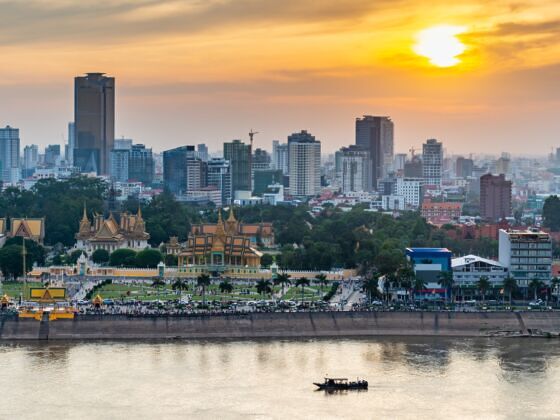This is part of the “Places That Changed Us” series, a compilation of 20 trips that have had a lasting impact on the Matador Network team. To see the other 19 places, click here.
Upon arriving in Phnom Penh in 2016, my wife and I were to meet up with a tuk-tuk driver that a fellow traveler we’d met in Vietnam had connected us to. The brutal legacy of Pol Pot, whose Khmer Rouge government brutally ruled during the Cambodian genocide from 1975 to 1979, casts a spell over Cambodia that is palpable in its capital city today.
